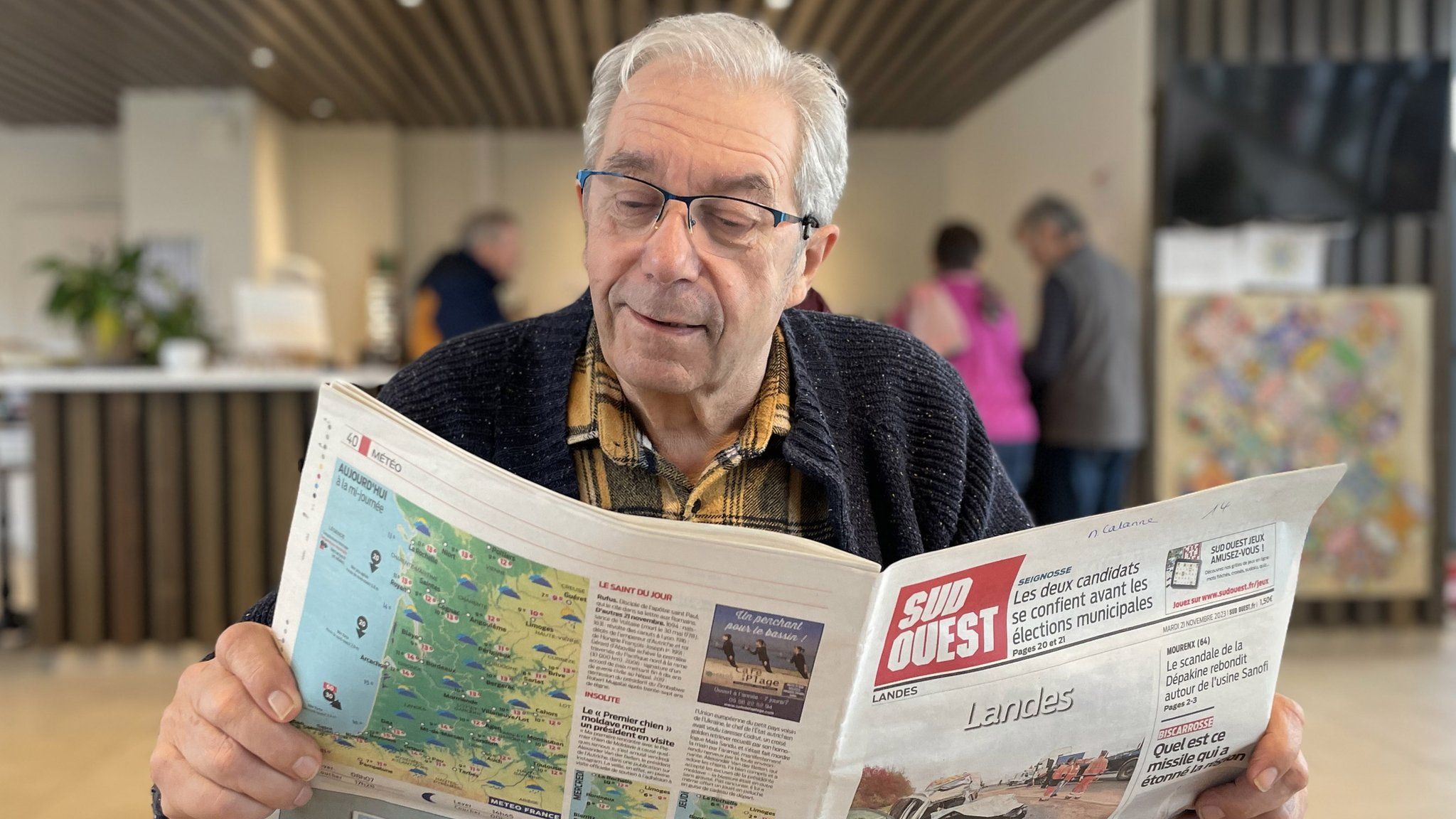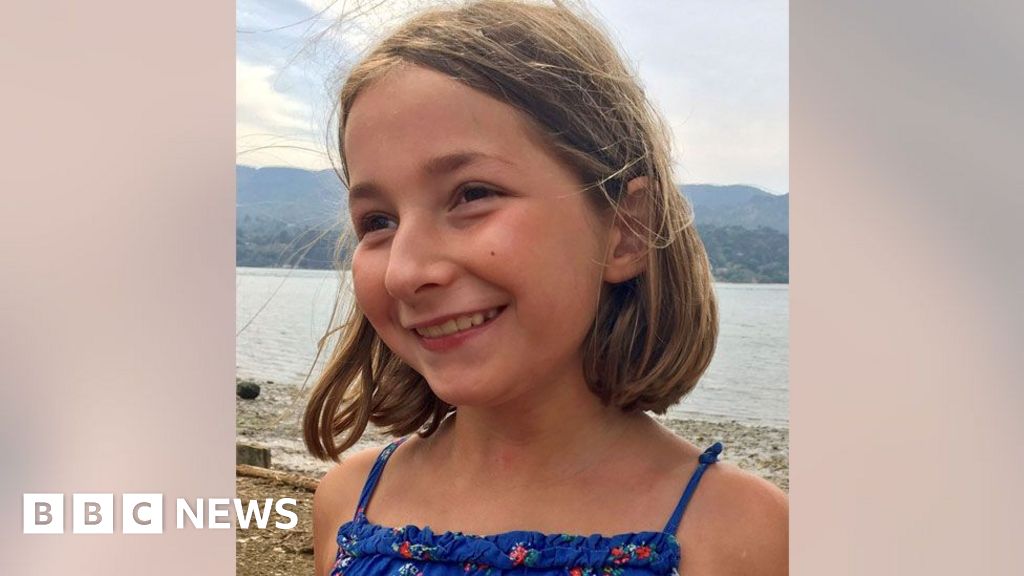ARTICLE AD BOX

Villager Francis is determined to keep going to the best of his ability, despite his Alzheimer's
By Sophie Hutchinson
BBC News
Landais Alzheimer, in south-west France, is a village with a difference - all the villagers have dementia.
The shop in the main square supplies simple groceries such as the all-important baguette but does not take money, so no-one has to remember their wallet.
Ex-farmer Francis is collecting his daily newspaper there - and I suggest we go for a coffee next door, in the restaurant that serves as the social heart of the village.
I ask Francis what it was like when the doctor told him he had Alzheimer's.
He nods, taking himself back to that time, and, after a pause, says: "Very hard."
'Keep going'
His father also had Alzheimer's - but Francis remains unafraid.
"I'm not afraid of dying, because that will happen one day," he says.
"Meanwhile, I will live my life despite the disease.
"I am here to live, even though it's not the same.
"If you surrender, you've had it. So you keep going, to the best of your ability."
Philippe and Viviane live as normal a life as they can
As well as the shop and restaurant, villagers are encouraged to attend the theatre - and join in activities.
Philippe and Viviane tell me they continue to live as normal a life as they can following their double dementia diagnosis.
The village is part of a research project
"We go on walks. We walk," Philippe says, looking into the distance.
And when I ask if they are happy, he instantly turns his head and, with a glowing smile, says: "Yes we are - truly."
Then, having finished their coffee and bundled up in warm clothes, the couple head back out into the park.
Time passes differently here, my guide at the village says.
There are no set hours for appointments, shopping and cleaning - just a gentle rhythm coaxing and cajoling villagers, to give them as much freedom as possible.
The village is being closely monitored - and Prof Hélène Amieva says early results suggest it is actually influencing the course of the disease.
Prof Amieva says families feel less guilty knowing their relatives live in the village
"What we used to see when people enter an institution is an accelerated cognitive decline - that is not observed in this institution," she says.
"We see a kind of very smooth evolution.
"We have some reasons to believe these kinds of institutions can influence the trajectory of clinical outcomes."
They have also seen a "drastic reduction" in families' feelings of guilt and anxiety.
Motioning to her mother, Mauricette, 89, sitting in her bedroom, Dominique says: "I have peace of mind, because I know she has peace of mind and is safe."
Dominique can see her mother, Mauricette, any time
Filled with family photos, paintings and the family's furniture, the room has a large window on to the garden.
With no visiting hours, people come and go as they please. And Dominique says she and her sisters never expected the care to be so good.
"When I leave her, I am relieved. When I arrive, it's like I am just at her house - I am at home with my mum," she says.
Each of the single-storey chalets houses about eight residents, with a communal kitchen, sitting and dining rooms.
Villagers are invited to visit the shop every day - it is staffed by volunteers
While villagers pay a contribution, the running costs - similar to an average care home - are mainly covered by the regional French government which paid £17m ($22m) to set up the village.
When it opened, in 2020, it was the second village of its kind - and the only one to be part of a research project.
And there still are thought to be fewer than a dozen like it in the world.
But it has attracted worldwide interest, from those looking for a solution to the predicted exponential growth in dementia.
Patricia says village life is like real life
In the village hairdressers, Patricia, 65, who has just finished having her hair blow-dried, says Landais Alzheimer has given her her life back.
"I was at home - but I was getting bored," she says.
"I had a lady to cook for me. I was tired. I was not feeling well. I knew that Alzheimer's wasn't easy and I was scared.
"I wanted to be somewhere where I could help too.
"Because in other care homes, it's like this, like that - but they don't do anything.
"Whereas here, it's real life. When I say real, I mean real."
A strong sense of community may be the key to the village's success
So often, dementia can isolate people.
But here, there seems to be a strong sense of community, with people genuinely interested in seeing each other and joining in activities.
And researchers say this social element may be part of the key to living a happier, and potentially healthier, life with dementia.
There are about 120 villagers and the same number of healthcare professionals, with volunteers on top.
There is, of course, a cruel inevitability because there is no cure.
But as each villager's disease progresses, they are given support they need.
And while this may be the winter of these villagers' lives, staff here believe it comes more slowly with more joy along the way.
Some contributors asked that their surnames be withheld
Related Internet Links
The BBC is not responsible for the content of external sites.

 1 year ago
112
1 year ago
112








 English (US) ·
English (US) ·